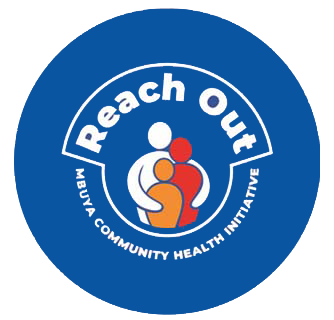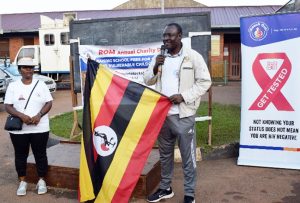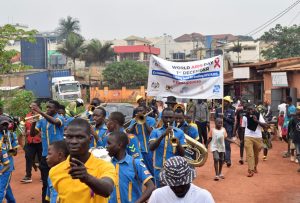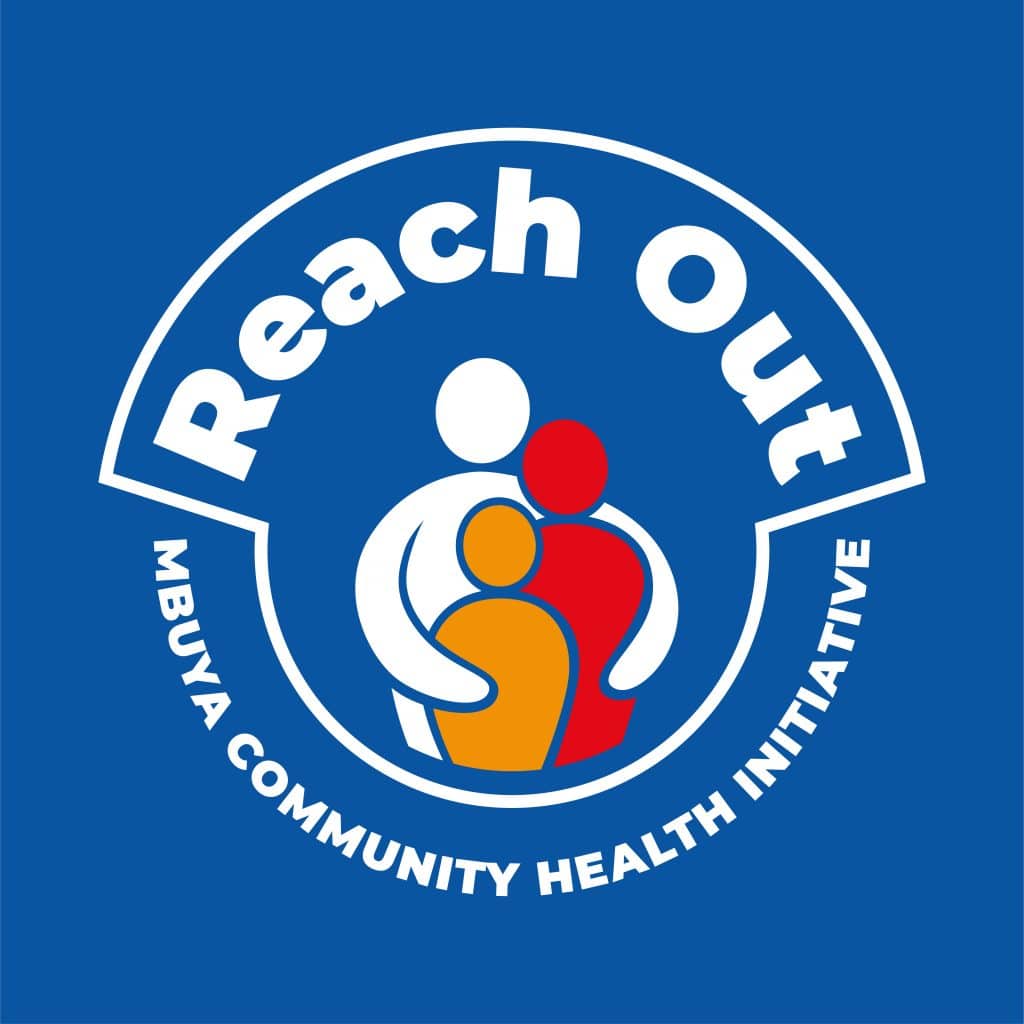This project aims at achieving health, safety and education of Ugandan children and adolescents to enable them reach their full potential
Post disclosure support is key to adherence among adolescents
As guided by the Consolidated HIV/AIDs Guidelines, HIV positive mothers having babies infected with HIV should disclose to them that status at the age of fifteen (15) years
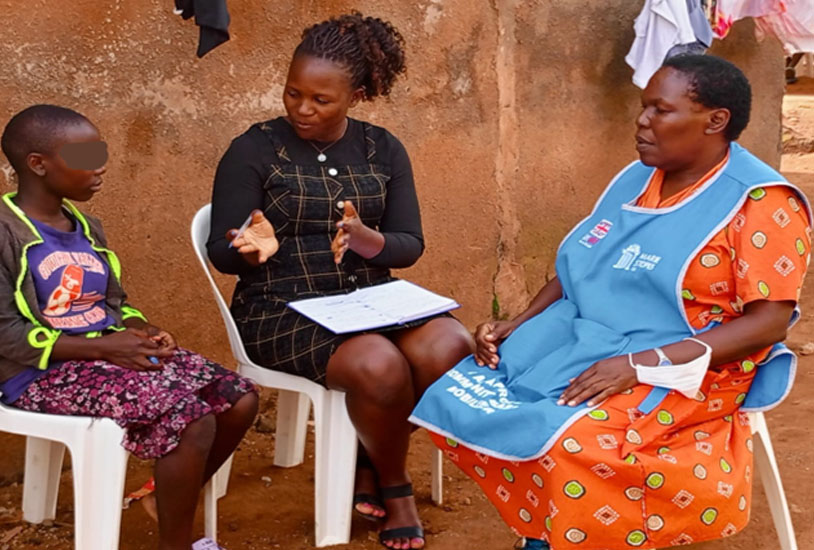
A ROM social worker and a Community Resource person engaging with an adolescent during a post disclosure support and treatment adherence session.
Socio-Economic Package to OVC plays mega role in Treatment outcomes and wellbeing
Through ICYD, socio-economic support is extended to Orphans and Vulnerable children to boost their social status and nutrition. A total of 1,854 (209Males, 1645Females) household heads were supported with seeds and established kitchen gardens.
Eight (8) demonstration gardens were established; 4 in health facilities like Kitebi HC, ROM Banda, Family Hope and another 4 in communities around Kyebando, Kanyanya and Ggaba parishes.
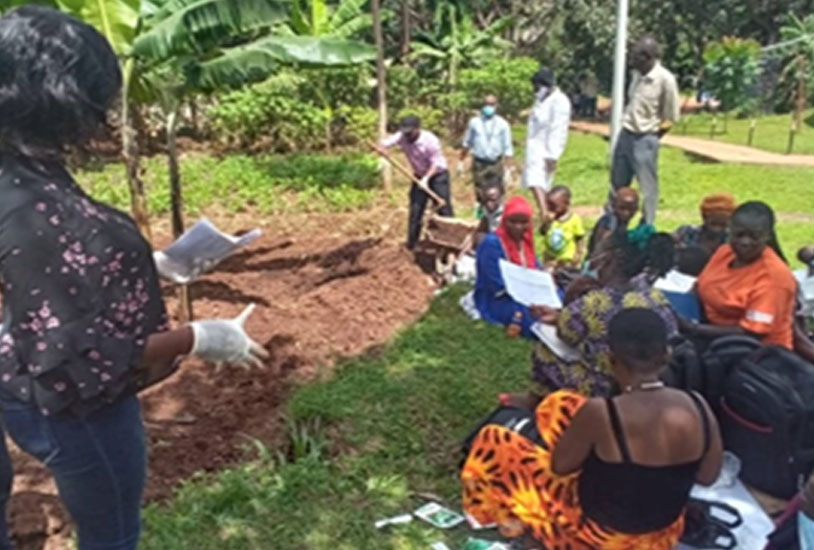
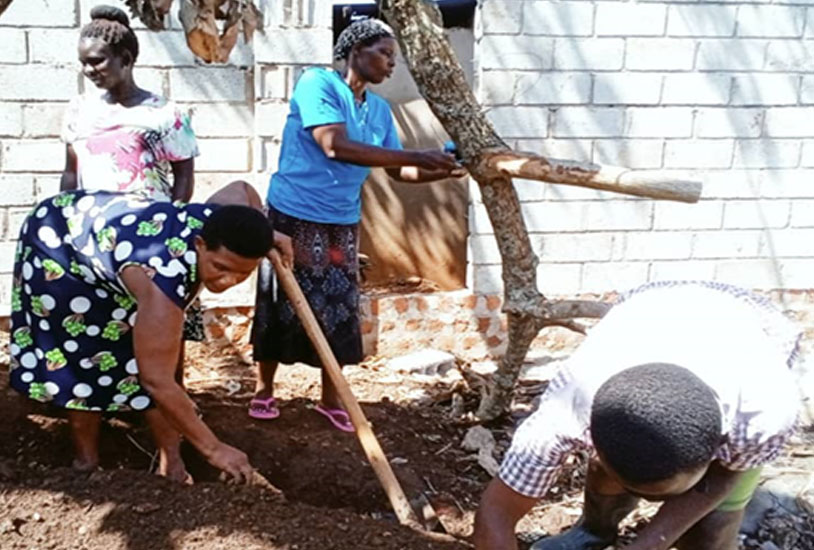
Beneficiaries under training for kitchen gardens
Caregivers use the vegetables to improve their household’s nutrition and also earn some income from vegetable sales which enables them to meet other basic needs like scholastics, and transport to health facilities.
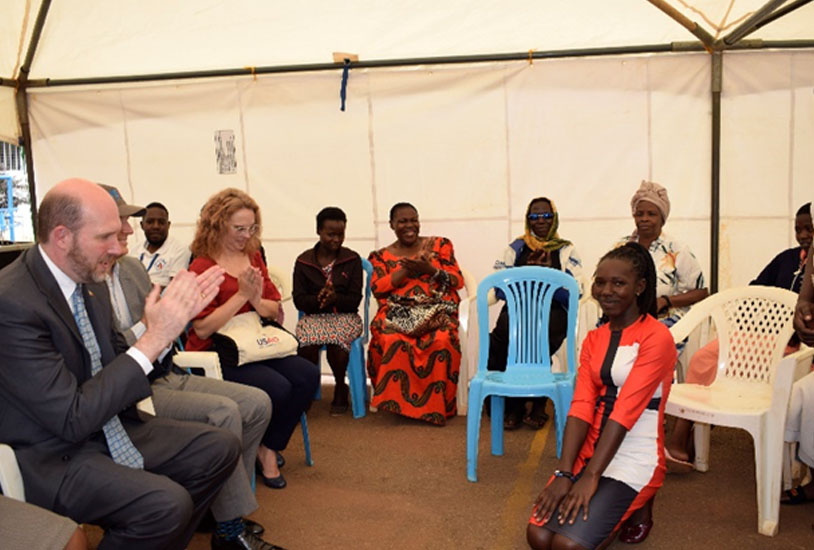
A care giver thanking the U.S Ambassador William Popp for the support given to them
With savings from vegetable sales, caregivers are able to join Village Savings and Loans Associations (VSLAs). A total of 184 of the caregivers bounced back to VSLAs where they were able to get loans and alternative skills that enabled them to start other businesses. The cycle above is a means to improve beneficiary financial wellbeing and adherence to treatment
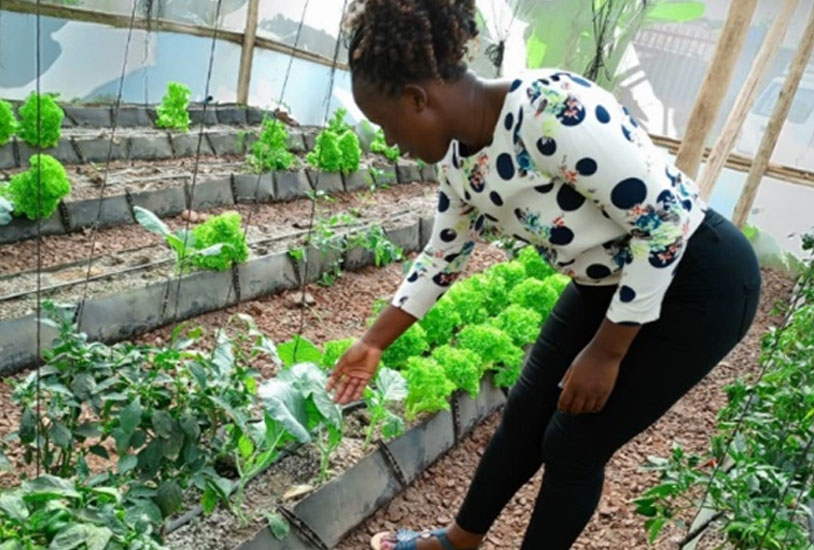
A ROM Social worker monitoring a growing kitchen garden at Namuwo, Kawempe Division
